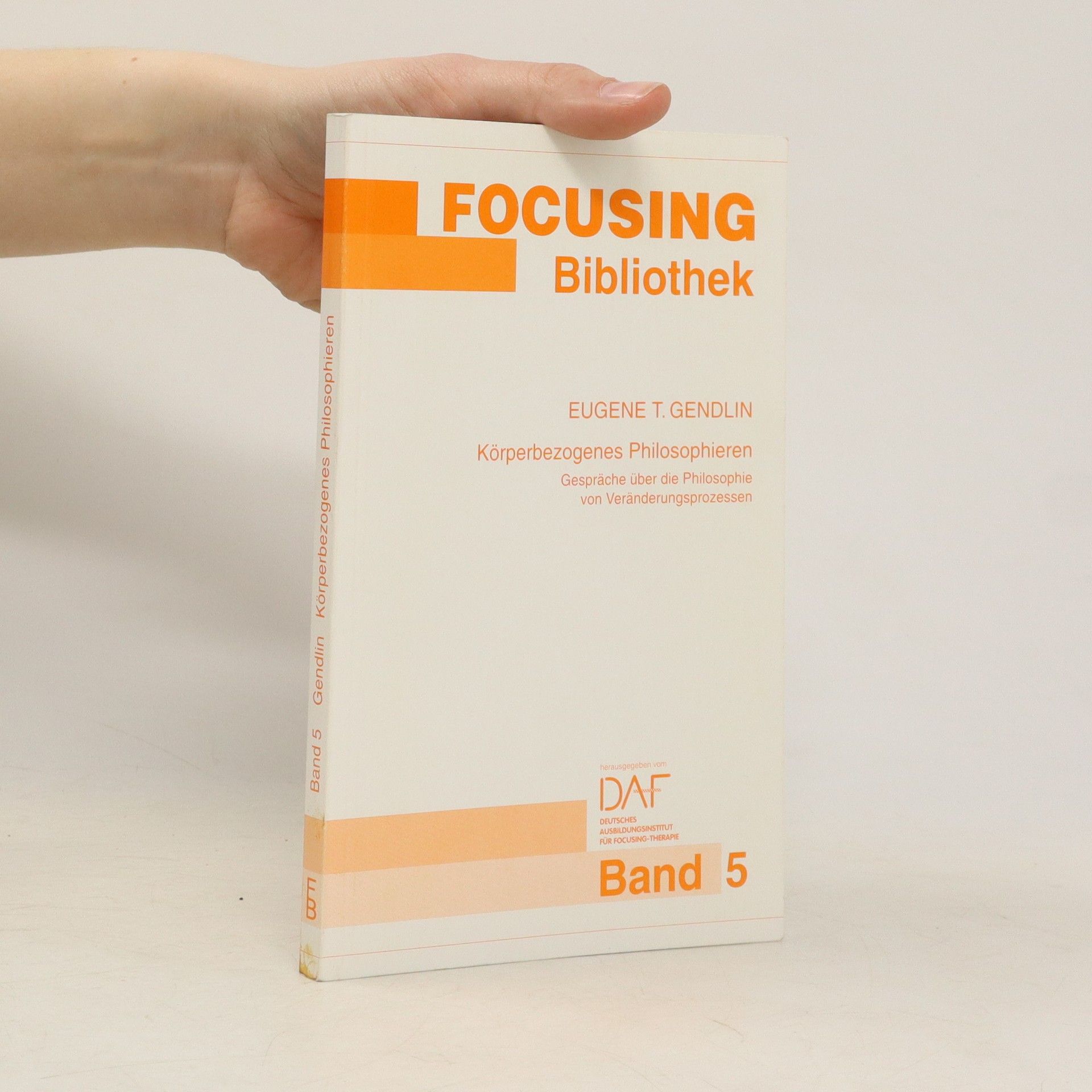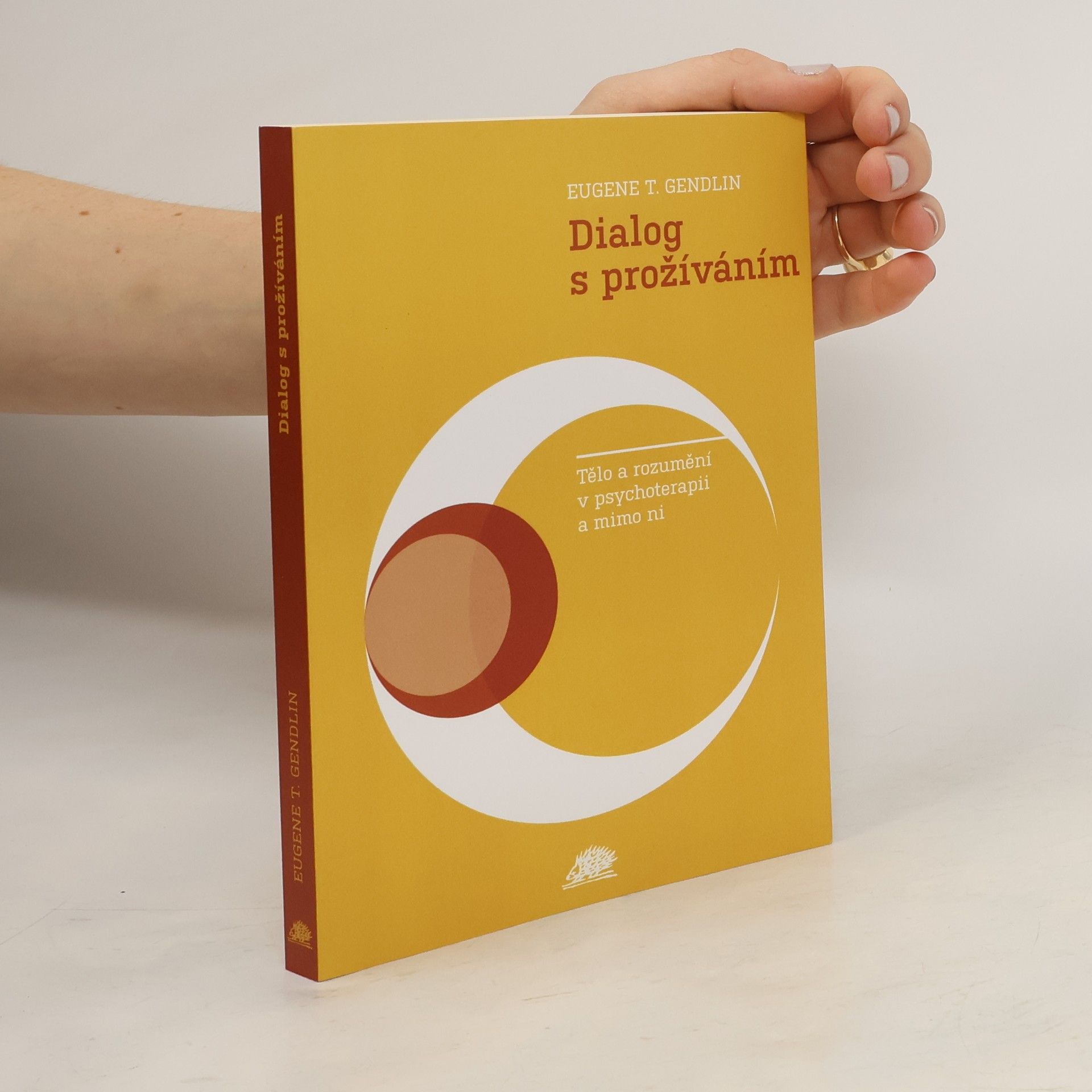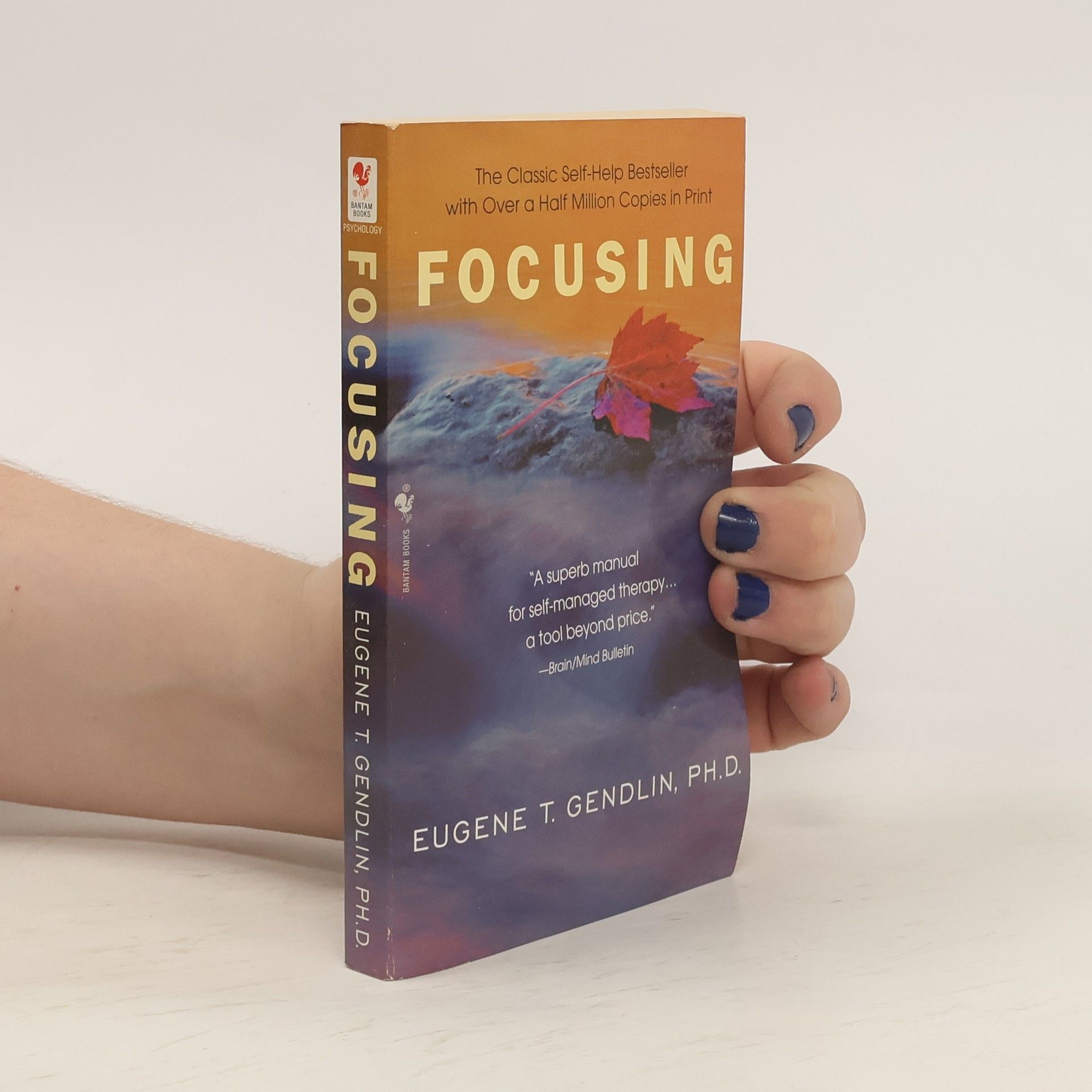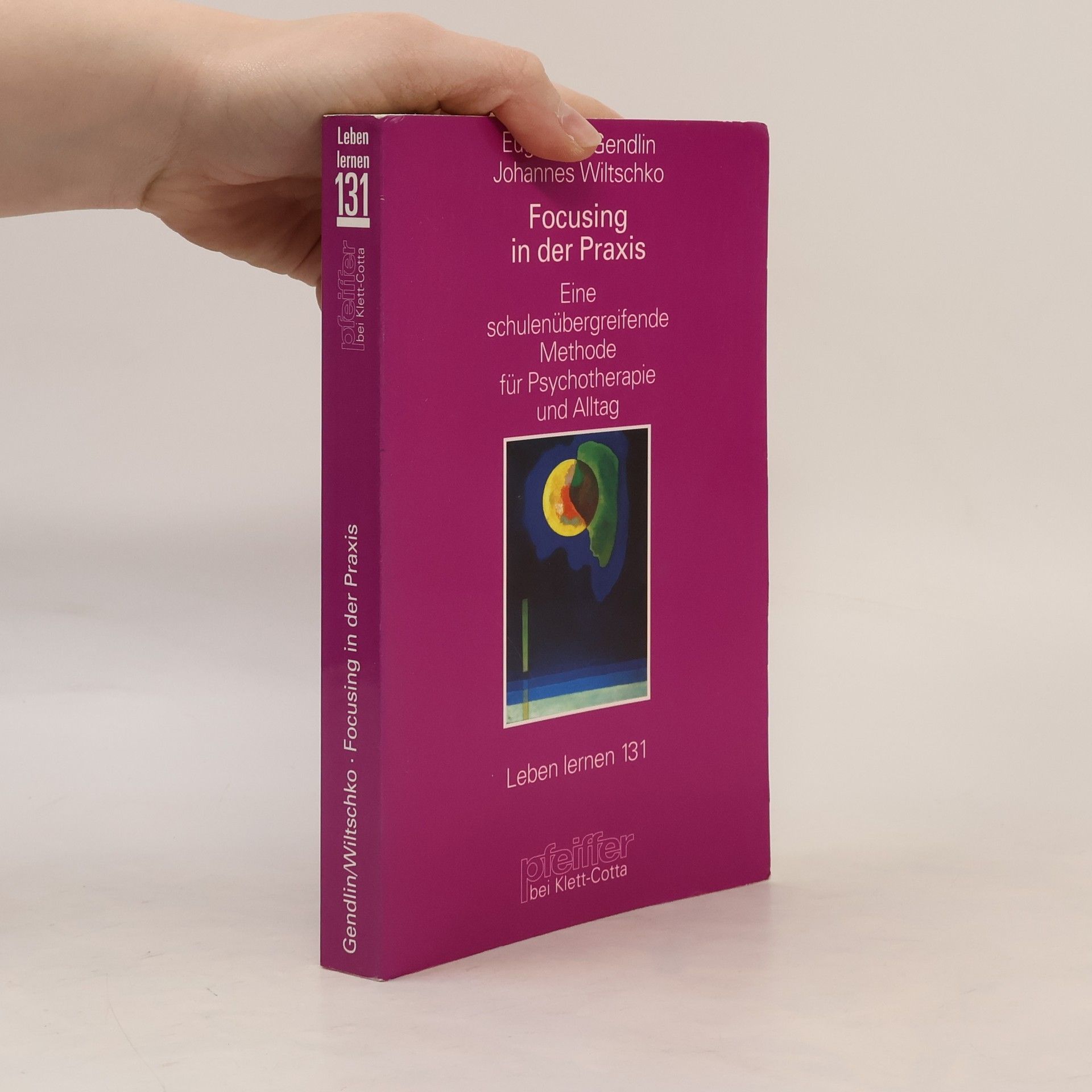Focusing on the therapeutic process, this book provides insights for therapists working with clients who show little progress. Through actual transcripts, the author analyzes client statements to identify moments of therapeutic movement and evaluates therapist responses to illustrate effective and ineffective strategies for fostering direct experiencing or focusing. This practical approach aims to enhance therapeutic effectiveness, especially in challenging cases.
Eugene T. Gendlin Livres
Eugene T. Gendlin était un philosophe et psychothérapeute américain qui a développé des approches novatrices pour travailler avec le processus vivant et le sens corporel ressenti. Il a également formulé une 'philosophie de l'implicite', explorant des domaines d'expérience au-delà des schémas et des concepts explicites. Gendlin est surtout connu pour ses méthodes de Focusing et Thinking at the Edge, qui offrent des procédures uniques pour une pensée plus profonde et incarnée.







Exploring the intricate relationship between dreams and personal growth, this book offers a transformative approach to understanding and interpreting dreams. It combines psychological insights with practical techniques, guiding readers on how to harness the power of their dreams for self-discovery and healing. Through engaging exercises and real-life examples, the author encourages a deeper connection to the subconscious, making this a valuable resource for anyone seeking to unlock the wisdom hidden within their dreams.
Focusing
- 174pages
- 7 heures de lecture
The classic guide to a powerfultechnique for personal transformationBased on groundbreaking research conducted at the University of Chicago, the focusing technique has gained widespread popularity and scholarly acclaim. It consists of six easy-to-master steps that identify and change the way thoughts and emotions are held within the body. Focusing can be done virtually anywhere, at any time, and an entire “session” can take no longer than ten minutes, but its effects can be felt immediately–in the relief of bodily tension and psychological stress, as well as in dramatic shifts in understanding and insight.In this highly accessible guide, Dr. Eugene Gendlin, the award-winning psychologist who developed the focusing technique, explains the basic principles behind focusing and offers simple step-by-step instructions on how to utilize this powerful tool for tapping into greater self-awareness and inner wisdom. As you learn to develop your natural ability to “focus,” you’ll find yourself more in sync with both mind and body, filled with greater self-assurance, and better equipped to make the positive changes necessary to improve and enhance every aspect of your life.
Tělo a rozumění v psychoterapii a mimo ni. Kniha Dialog s prožíváním ukazuje ovšem více Gendlinovu filosofickou reflexi terapie a života. Jako teoretik se ptá, zda jsou prožitkové události terapie dostatečně zohledněny v převládajících psychologických pojetích, a jako filosof promýšlí širší společenské důsledky terapeutické praxe. Jeho tématy jsou např.: Co obnáší terapeutická změna? Jedná se o změnu „prožívání“? Jaké důsledky to v tom případě bud mít pro obecný psychologický model osobnosti? Co se vlastně skrývá pod výrazem „nevědomí“, kterým od Freuda označujeme oblast „vytěsněných prožitků“? Jak mluvit o prožitcích, pro které nám chybí slova? Lze s vlastním proměnlivým prožíváním navázat kontakt, nebo s ním dokonce vést dialog?
Focusing : tělesné prožívání jako terapeutický zdroj
- 168pages
- 6 heures de lecture
Focusing je terapeutický směr, který se rozvinul z dlouholeté výzkumné práce svého zakladatele na univerzitě v Chicagu. Je to technika terapie či sebeterapie, spočívající v rozpoznání a změně osobních problémů zakotvených v lidském těle. Jako postup focusing představuje několikastupňové prožívání změny - každý ze stupňů, je-li správně absolvován, přináší s sebou fyzické uvolnění a odbourání napětí. Vede k hlubší úrovni sebeuvědomění ve svém těle.... celý text
Focusing in der Praxis
- 243pages
- 9 heures de lecture
Mit Hilfe von Focusing, einer Form nach innen gerichteter Aufmerksamkeit, können die Selbstheilungskräfte des Körpers mobilisiert werden. Focusing ist in jede Therapieform integrierbar, gestaltet jede Therapie effektiver.
Focusing-orientierte Psychotherapie
- 480pages
- 17 heures de lecture
Focusing ist eine Form nach innen gerichteter, körperlicher Aufmerksamkeit, die auch in festgefahrene therapeutische Prozesse wieder Bewegung bringen kann. Der Autor zeigt hier zum einen, wie Focusing funktioniert, und zum anderen, wie es in die unterschiedlichsten therapeutischen Ansätze integrierbar ist. Ob Psychoanalyse, Verhaltenstherapie, die Arbeit mit Imaginationen, Körperenergien oder Träumen - Focusing kann alle therapeutischen Ansätze steigern und Blockaden aufheben.
Dein Körper - dein Traumdeuter
- 238pages
- 9 heures de lecture
Jeder träumt - individuell, mit eigenen Farben und Gefühlsqualitäten. Deshalb - so Gendlin - verweigern sich Träume auch einer allgemein verbindlichen Symboldeutung. Träume wollen individuell erschlossen werden. Dabei hilft die Technik des Focusing, eine Form nach innen gerichteter körperlicher Aufmerksamkeit. Der Autor zeigt Schritt für Schritt, wie Träume so befragt werden können, dass Antworten aus dem körperlich gespürten Erleben entstehen: frische Energie, Visionen und Lösungen für konkrete Lebensthemen. Diese spezifischen Traumfragen öffnen die märchenhafte und mythologische Logik der Träume. Sie heben den Schatz, der in die Weisheit der Träume eingewoben ist. Das Buch eignet sich für alle, die Zugang zu ihren Träumen suchen, und für Therapeuten und Therapeutinnen, die die Arbeit mit Träumen in ihre Praxis einbeziehen.


